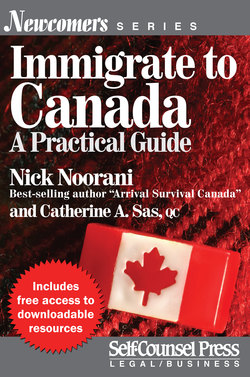Читать книгу Immigrate to Canada - Nick Noorani - Страница 13
На сайте Литреса книга снята с продажи.
1.2 Securing a position with a Canadian employer
ОглавлениеIt can be quite difficult to get a job in Canada while you are in your home country. Given Canada’s booming oil and gas exploration industry, there has been some overseas recruitment for technical professions. As Canada’s labour requirements grow, employers are scouting international job boards.
In the future, Citizenship and Immigration Canada (CIC) wants to allow employers to search a government database of résumés in a proposed program called Express Entry (EE). This system will be in operation in early 2015. (See Chapter 12 for more information.)
The EE program (www.cic.gc.ca/english/immigrate/express/express-entry.asp) shows promise for job seekers worldwide. In principal, you will register your résumés on a Government of Canada authorized website and employers can interview suitable candidates with a job offer. Prospective immigrants will complete an online form indicating their “interest” in coming to Canada as permanent residents. The form may include information that relates to language proficiency, work experience, and assessed education credentials.
Caution: Beware of consultancy companies promising jobs along with visas. Many of them are immigration consultants who are not permitted by the Canadian authorities to do recruiting. While there are some reputed firms who are conducting interviews online and hosting job fairs in various countries, they are not permitted by Canadian law to charge you a fee for this.
In addition, you must also do the following before being granted a temporary worker’s visa:
• Satisfy a visa officer that you will leave Canada at the end of your work permit.
• Show that you have enough money to support yourself and your family while you are in Canada.
• Respect the law and have no criminal record.
• Show that you are not a risk to the security of Canada.
• Be in good health (you may have to have a medical examination).
Note: If you or a family member has a criminal record, you may not be eligible for either a temporary visa or permanent residence or you may have to apply for Criminal Rehabilitation.
Generally, temporary work permits are issued for a period of one to three years. During that time, many temporary workers decide that they want to live in Canada permanently. Some may apply for permanent residence independently through the skilled worker category as long as they satisfy the current criteria. Alternatively, others who have worked in Canada may pursue permanent residence through the Canadian Experience Class (CEC).
Furthermore, some employers will find that the workers they have brought into Canada are of such value to their companies that they will choose to nominate them through a Provincial Nominee Program (PNP). Each of these processes for permanent residence will be described more fully in the subsequent chapters.
Find out more about working in Canada temporarily on CIC’s website (www.cic.gc.ca/english/work/apply-who.asp).
